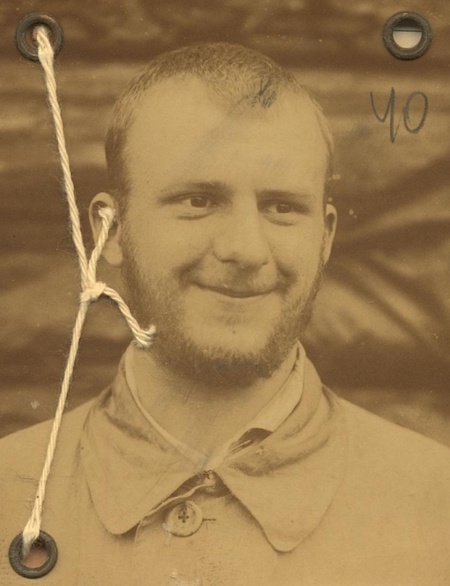A University of Aberdeen academic has received a prestigious prize for his part in a huge 10-year study that sheds new light on a forgotten figure of Russian anthropology.
Professor David Anderson, and his former colleague at the University, Dr Dmitry Arzyutov, have won the annual Ab Imperio Award 2019 for their research on Sergei Shirokogoroff and his fieldwork with the Evenki and Manchu peoples of Siberia and China.
Born in 1887, Shirokogoroff studied at the University of Paris and then the Ecole d’anthropologie before returning to Russia in 1910, to enter the Natural Sciences Department of St Petersburg University, where he began studying the ethnography of the Tungusic peoples, participating in expeditions in north east China and eastern Siberia. In 1912, he started his research on the ethnography of the Manchu people. Later writers described Shirokogoroff as one of the greatest scholars of Tungusic studies.
The article by Professor Anderson and Dr Arzyutov is based on a paradox that though for much of the 20th, and indeed the 21st, centuries the Russian Federation/Soviet Union was engaged in a superpower competition with Western Europe and America, scholars in both countries built bridges to use anthropology to bring scholars together.
Professor Anderson, who holds the Chair in the Anthropology of the North at Aberdeen, said: “The research started when my colleague Dr Arzyutov opened a dusty mahogany cabinet in the Peter the Great Museum of Ethnography and Anthropology in St Petersburg around 2010, and discovered an undocumented trove of glass plate negatives showing the fieldwork of the early 20th century ethnographer Sergei Shirokogoroff.
“We wanted to digitise the collection and match the photographs to accounts of his fieldwork with Evenki and Manchu peoples in Siberia and China. I have spent a great part of my career working with Evenki people all across Russia, while Dr Arzyutov, now at the KTH Royal Institute of Technology in Stockholm has had a long history of working with neighbouring Siberian peoples and has an interest in visual anthropology and the history of science.”
The collaboration unfolded into a research initiative leading the two to consult documents in 12 countries on three continents, tracing the story of Sergei Shirokogoroff from Australia, Canada and Taiwan to the University of Aberdeen’s own archive collection.
Their article discusses the phenomena of transnationalism – the way that scholarly networks are built by friendship and solidarity across international boundaries.
Professor Anderson added: “We feel that this in an important message in our day of a global pandemic, which is leading to boundaries to close once again.”
The award for best article in a peer-reviewed academic journal or chapter in a scholarly collection is one of two given annually by the Ab Imperio scholarly group, which sponsors a journal, a conference, and unites scholars all across the world interested in the history of Russia and Eurasia, in conjunction with Latvian-based educational institution KRE Poliskola.
Professor Anderson and Dr Arzyutov’s article is supported with a major edited book collection, and a two volume set of primary documents which is being published early 2021. They will also deliver the Ab Imperio Award public lecture at the Higher School of Economics in St Petersburg later this year.


